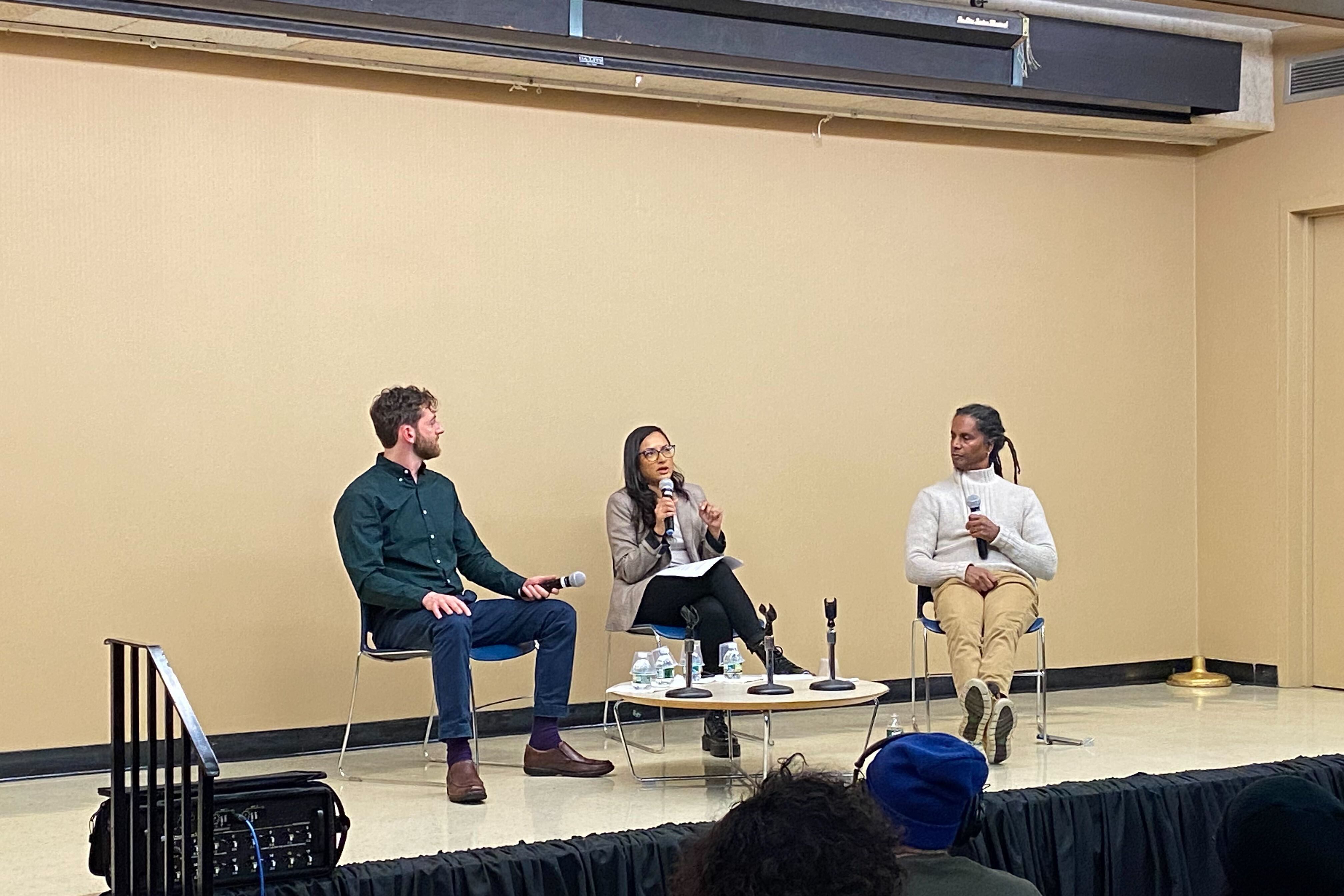To make the second season of School Colors — the critically acclaimed podcast examining race, class, and power in New York City schools — creators Max Freedman and Mark Winston Griffith spoke with more than 120 parents, educators and policy experts about a contentious effort to diversify schools in one corner of Queens.
One person they didn’t get to talk to was schools Chancellor David Banks.
That changed on a rainy Thursday night in December, when Freedman and Winston Griffith sat down with Banks as part of a special event at the Queens Public Library in Jamaica, co-sponsored by Chalkbeat and THE CITY. They asked him about his vision for supporting school diversity in one of the nation’s most segregated public school systems.
A wide-ranging conversation followed, touching on the definition of diversity in a multiracial and multiethnic school system, the balance between improving local schools versus moving students to schools farther away, and how to incorporate the views of parents when their opinions and platforms vary so widely.
The city’s hopes to create a diversity plan for District 28 middle schools fizzled during the pandemic, when the public health crisis took center stage. But the process faced an uphill battle regardless, as the podcast showed, with some of the deeply embedded hurdles in a district separated by a “Mason-Dixon Line,” with Forest Hills on one end and Jamaica at the other.
Banks said he supported districts that wanted to create integration plans, but citywide he preferred to develop “excellent schools” in neighborhoods where kids already live.
And for now, after one year in office, he has other priorities.
“The entire system that we’re seeking to integrate is fundamentally flawed,” Banks said. “Whether you get a chance to sit next to Latino kids, White kids, Black kids, Asian kids - that’s actually less of a priority to me than what is a quality school experience in the first place?”
Banks also shared some of his own experiences as a student growing up in Southeast Queens and getting bused out of his neighborhood to a higher-performing school.
That discussion is now a bonus episode of School Colors that you can find here.
After the interview with Banks wrapped up, Chalkbeat reporter Reema Amin spoke with Freedman and Winston Griffith about their reflections on the chancellor’s remarks, and how they put together the second season of School Colors.
Winston Griffith pointed out that how one frames the purpose of integration often shapes the outcome of the conversation. “If you talk about what it means to be a global citizen and what it’s going to take for everyone to have access to the same kind of quality education, there are not many roads that don’t lead through integration in some form or fashion,” he said.
Reflecting on Banks’s views, Winston Griffith added, “I think what you heard is a fatigue that is generations-long of having this conversation, and integration being lifted as the answer and the solution, and having to, what it feels like, is sort of beg white people to sit next to them.”
That conversation is also a bonus episode that you can find here.
The panelists agreed that the astute and diverse questions and comments from audience members — including suggestions about including more student voices —were a highlight of the evening.
“Us talking to ourselves doesn’t do anything,” said Winston Griffith. “The fact you’re listening and you took the time out on a rainy day to be here and participate in this, it means so much to us.”
Michael Elsen-Rooney is a reporter for Chalkbeat New York, covering NYC public schools. Contact Michael at melsen-rooney@chalkbeat.org.






